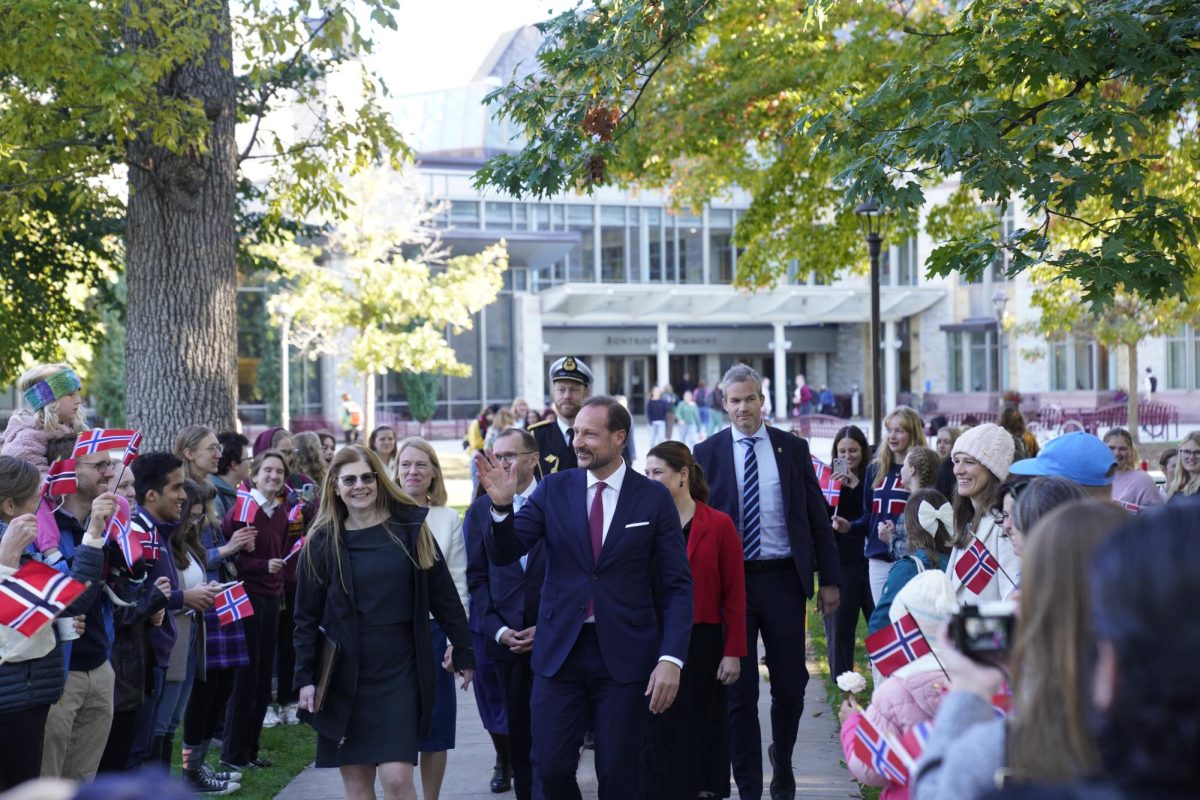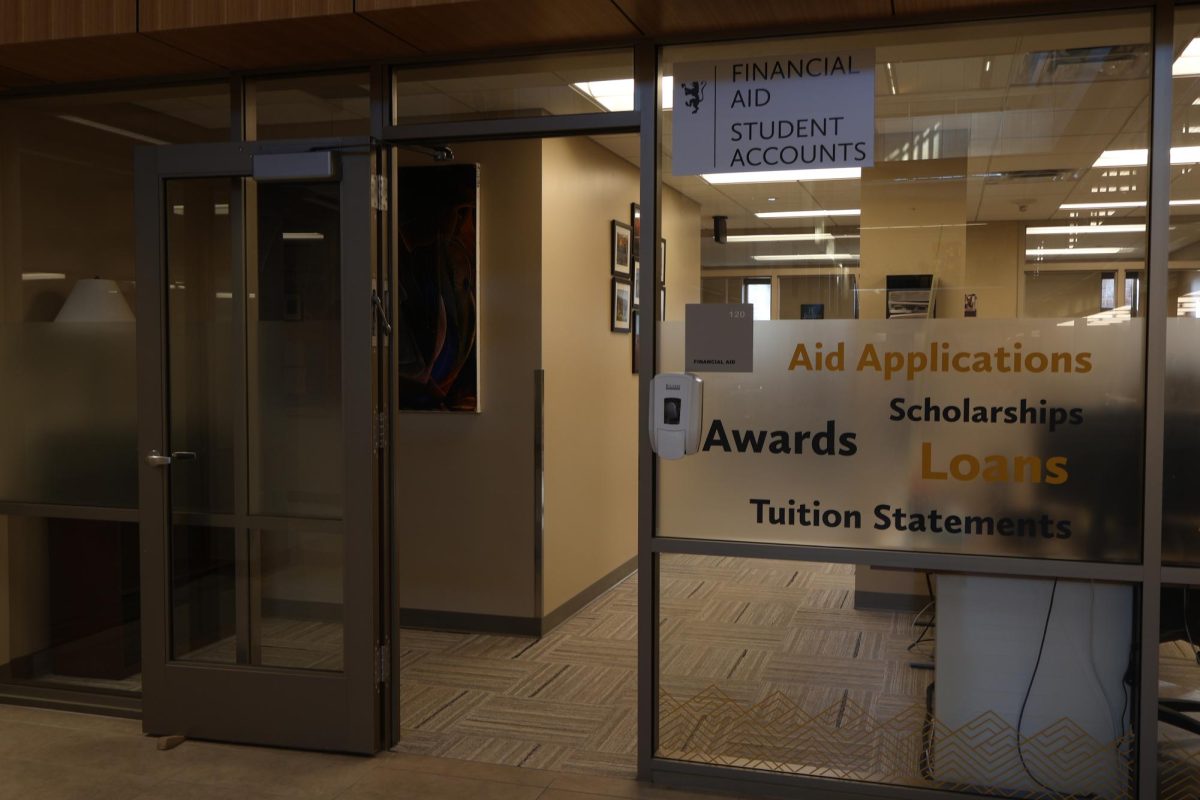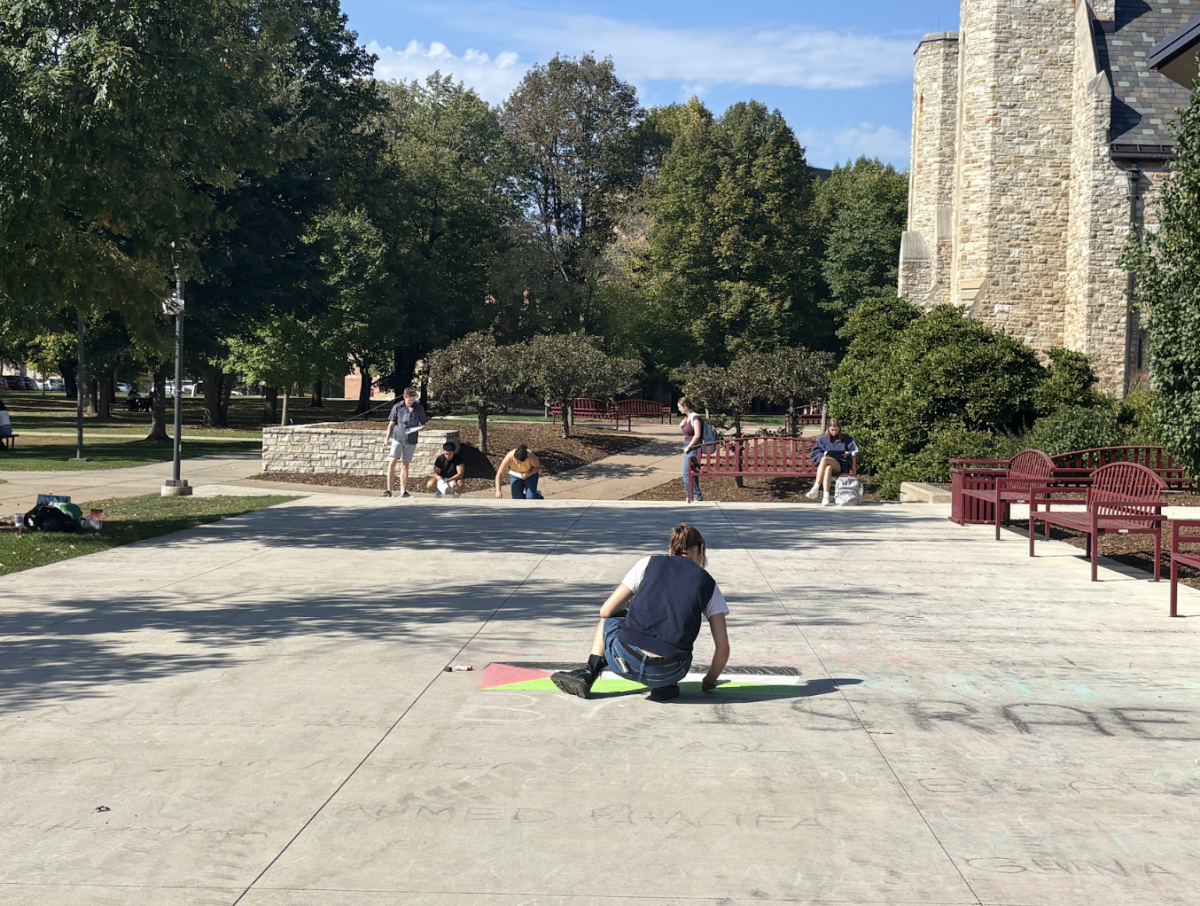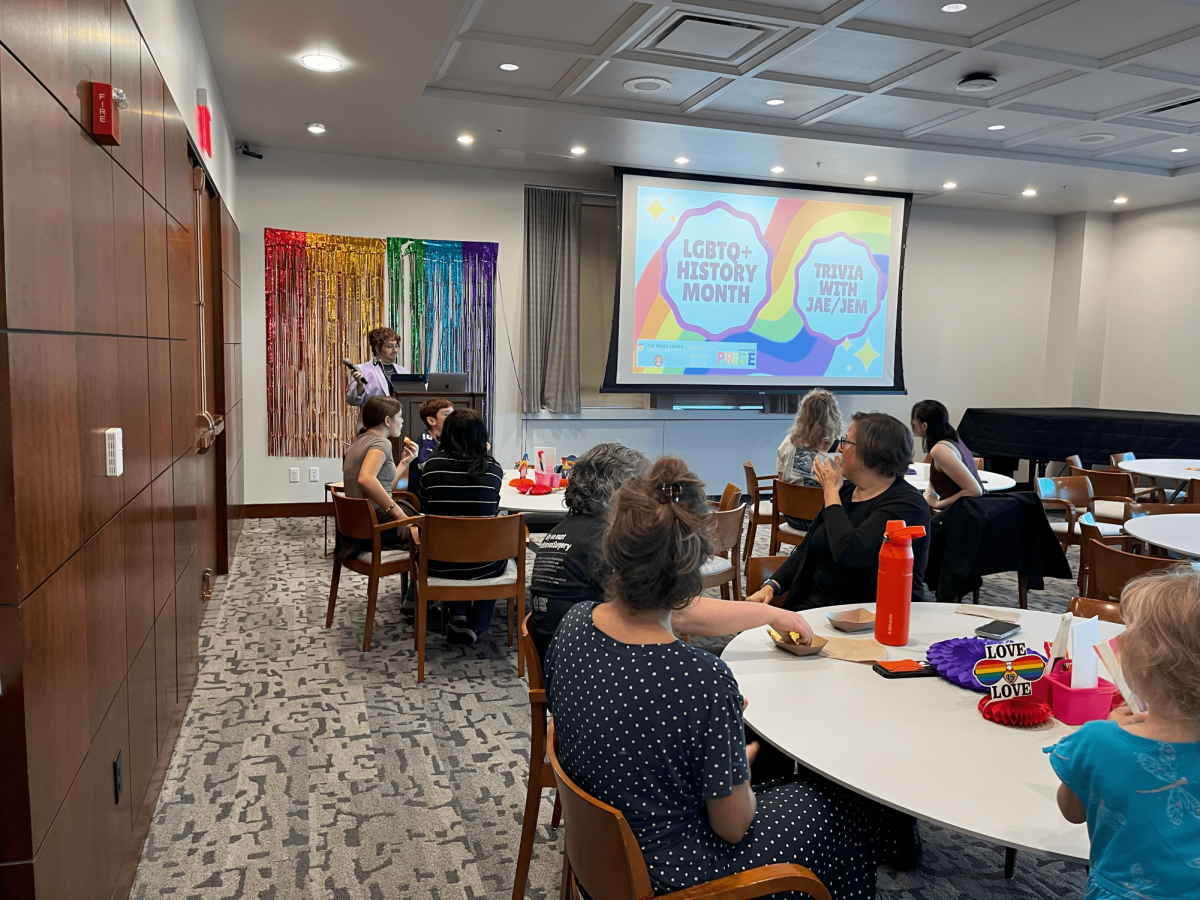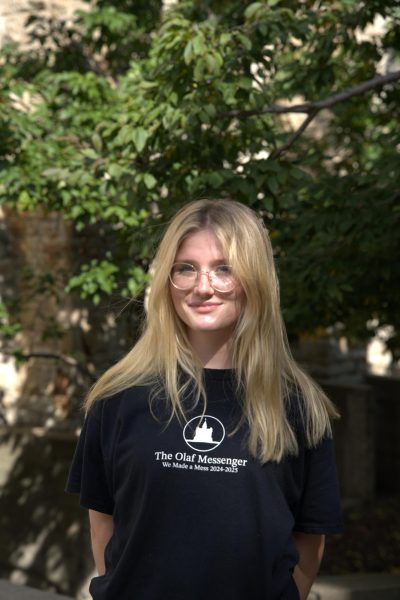On Feb. 28, President Susan Rundell Singer announced, in an email to the student body, the formation of a Policy Rapid Response Team. The team is composed of faculty, staff, and students who will serve as advisors in the college’s response to recent policy changes.
Shortly after the announcement, some community members raised questions about the selection process.
Following this feedback, the Policy Rapid Response Team — which held its first meeting on March 19 — has since added Student Government Association President Zaria Irving. The team may expand further to include representatives from the Faculty Life Committee (FLC) and the Faculty Governance Committee (FGC).
With these additions, the team, which consists of around 20 different community members, has been tasked with making recommendations and providing ideas aligned with St. Olaf’s mission and Lutheran roots according to Rundell Singer’s original email.
In an interview with The Olaf Messenger, Rundell Singer explained that the idea for the Policy Rapid Response Team began from conversations between herself, Vice President for Belonging Eduardo Pazos Palma, and General Counsel Carl Lehmann. The three, who already worked closely together to monitor daily shifts in higher education policy, identified a need for a broader advisory team to guide the college’s response.
“What I wanted to do — and Eduardo and Carl [wanted] — was to have a way that we could regularly just touch base broadly across campus, so all different parts of campus, work, and life,” Rundell Singer said.
When assembling the group, Rundell Singer aimed to include individuals from diverse roles across campus, including those who work with custodial staff, athletics, students, faculty, and other areas of campus life.
“We looked at a whole range of perspectives, so they’re balanced out in a lot of different ways,” Rundell Singer said.
However, there were some constraints to this selection, considering the many different groups and spaces on campus.
“If we had just let every imaginable group choose somebody, it would defeat the purpose,” Rundell Singer continued.
Lehmann echoed this sentiment.
“I think in situations like this, it’s important to get the right people, not the people who, who necessarily, because of a position or a title, think they should be a part of it,” Lehmann said.
Secretary of Student Affairs Donovan Roddy was one of the initial appointees — as well as the only current student appointed to the original list.
“When it comes to these sorts of policies that are affecting students, as a large majority of the population on campus, I felt a little daunted about being put in a position where I would have to represent all students,” Roddy said.
SGA President Zari Irving, noting the effects that recent policy changes have had on the majority of the student population, raised her concerns to Pazos Palma and Rundell Singer.
“When students come to college, this is their life. This place becomes their life,” Irving said. “It’s a lot to put the voices of 3,000 people on one person.”
From her conversations with Pazos Palma, Irving gained insight into their process. She noted that she felt they were intentional about pulling representatives from many different areas on campus, while also ensuring that the Policy Rapid Response Team could still operate efficiently.
Although Irving initially had no intention of joining the team as she entered these conversations, when Rundell Singer extended an invitation, she accepted after giving it some thought.
“I think that having more than one student makes a lot of sense, and I’m very happy that that happened,” said Roddy.
Associate Professor of Asian Studies and Chair of the FLC Joanna Quimby first learned of the Policy Rapid Response Team from Rundell Singer’s Feb. 28 email. At the time, she found it strange that there was an absence of representation from faculty governance.
It wasn’t until Quimby ran into the chair of the FGC that a conversation sparked, and she became involved with the ongoing conversation between the chair and Rundell Singer. When realizing Quimby had been left out of the loop, Rundell Singer forwarded an email she had sent previously outlining the rationale behind the selections for the team.
“I did wonder about how that committee was formed, and I wish it had been more transparent, and I wished there had been faculty involvement,” Quimby said.
After speaking with FLC and FGC leadership, Rundell Singer offered spots for representatives from each committee. Both the FLC and the FGC have yet to name their representatives. According to Quimby, the topic is on the agenda for the FLC’s meeting next week.
The Olaf Messenger reached out to FGC leadership for an interview but did not receive a response.
Roddy acknowledges that, while more communication from the college would be ideal, there is too much uncertainty to be lax with what is shared.
“The college is still trying to figure that [balance between transparency and uncertainty] out, which I think can be frustrating for everybody, including us,” Roddy said. “We’re all just kind of like, ‘What the heck is going on?’ but they’re also like, ‘What the heck is going on?’”
Irving, who meets regularly with Rundell Singer, Pazos Palma, and Lehmann, acknowledges that it is impactful for students to receive communication about events. She also said that there is more happening behind the scenes.
“I can feel confident in saying that the college is doing a lot of work to counteract all these executive orders and protect students and work with them and marginalized groups that need that support,” Irving said. “There’s a lot happening that we just don’t know about.”
According to Rundell Singer, the Policy Rapid Response Team is just one of the “many, many ways” the college is engaging with its community members. In addition to providing regular updates to faculty, meeting with small groups around campus, and collaborating with SGA, a newsletter sent to faculty this past Tuesday introduced a new email address for those with questions regarding executive orders or pending legislation: [email protected].
“I think the most important thing we can do… [is to] tell folks [that] everyone’s teaching value on this campus,” Rundell Singer said. “And we can act in a way that we show that and we stay true to our mission. We don’t change what we’re doing in the classroom. Those are the two most powerful things we can do right now. Be a really strong community, where we stay connected, where we genuinely listen to each other, where we support each other. We don’t create splitting. And then just keep doing the good work we’re doing.”
